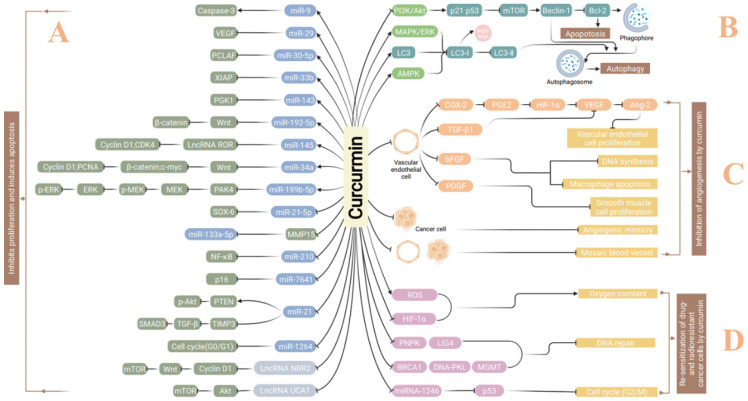Figure 2.
Part A: Curcumin inhibits proliferation and induces apoptosis of cancer cells through miRNA and lncRNA-mediated mechanisms. Part B: Curcumin-mediated autophagy of cancer cells. Curcumin may inhibit the PI3K/Akt signaling pathway to activate the autophagy marker Beclin-1, which induces apoptosis via inhibition of Bcl-2 and promotes the formation of autophagosomes from the free phagophores, inducing autophagy. Curcumin can also activate the MAPK/ERK and AMPK signaling pathways or LC3 to induce autophagy via an LC3-II-mediated mechanism. Part C: Inhibition of angiogenesis by curcumin. Curcumin can inhibit the proliferation of vascular endothelial cells and smooth muscle cells through COX-2/PGE2, TGF-β1-, bFGF- and PDGF-mediated mechanisms. Curcumin can also inhibit the angiogenic mimicry of cancer cells and mosaic blood vessel formation in co-cultures of cancer cells and vascular endothelial cells. Part D: Re-sensitization of radioresistant cancer cells by curcumin. Curcumin can increase oxygen content through upregulation of ROS or downregulation of HIF-1α, inhibit DNA repair and promote cancer cell arrest at G2/M through the miRNA-1246-mediated p53 pathway.

